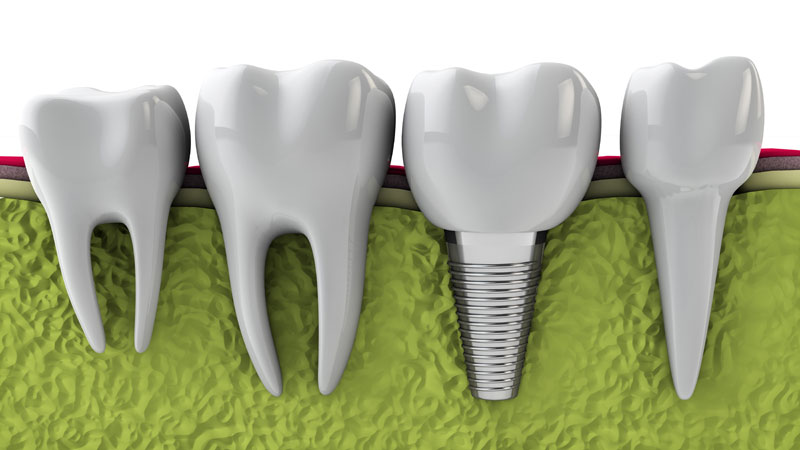Examining the reasons for the need for dental implants
Dental implants are surgically placed in your jawbone. The implant acts as the root of the missing teeth. The titanium in the implants is welded to the jawbone. This is why the implanted tooth will not slip out of place, make noise or damage your jawbone.. Food cannot cause decay of implanted teeth. In this article from Dr. Hossein Borjian's website The best cosmetic dentist in Isfahan We examine the reasons for the need for dental implants.
If you have the following conditions, dental implants can be a good option for you:
- Have healthy oral tissues.
- You do not want to use artificial teeth.
- Have one or more missing teeth.
- Have a fully developed jawbone.
- You do not have a specific disease that affects bone health.
- Have enough bone to secure the implants or be able to do a bone graft.
Dental implant complications
surgery Dental implant Like any other surgery, it has health complications. However, problems are rare and when they do occur they are usually minor and easily treated. Some of the most important complications are::
- Sinus problems
- Infection at the implant site
- Damage to surrounding structures, such as other teeth or blood vessels
- Nerve damage, which can cause pain, numbness, or tingling in the teeth, gums, lips, or chin.
Preparation before implant surgery
Dental implant surgery can be performed by different specialists. For example, maxillofacial surgeon, gum and bone specialist (periodontist), prosthetists and even ear, nose and throat specialists can perform implant surgery. Since dental implants require one or more surgeries, a complete evaluation of the condition of your jaw and teeth is performed before the operation.. The first test that the dentist prescribes for you is X-ray and 3D of the teeth.
Then the dentist will ask you questions about your health status and any diseases or medications you are taking. Therefore, if you take any medicine or even supplements, you should inform your dentist about it. If you have heart disease, your doctor may prescribe antibiotics before surgery. Taking this medicine prevents possible infections.
To control the patient's pain, the doctor usually uses different options such as local anesthesia, sedative injection or general anesthesia. If needed, you can talk to your dentist about different pain control methods. Next, depending on the type of anesthesia, the dentist will tell you the necessary tips about eating and drinking before the surgery.. It is better to have a companion on the day of surgery. Ask your companion to take you home after the operation so that you can rest for the rest of the day.

Dental implant procedures
Dental implant surgery is usually an outpatient procedure that is performed in several stages and there is a recovery time between the two procedures.. The process of implanting a dental implant includes several steps, which are::
- Extracting the damaged tooth
- Jaw bone preparation
- Implantation of screw and metal tooth base
- Bone growth and healing at the implant site
- Placing artificial teeth on the base
The entire dental implant process may take several months from start to finish. However, most of the treatment phase is spent waiting for new bone to grow in your jaw.
The Instagram page of Dr. Hossein Borjian, the best cosmetic dentist in Isfahan
Cases requiring bone grafting
If your jawbone is not thick enough or too soft. You may need bone grafting before dental implant surgery. In fact, the act of chewing puts a lot of pressure on the bones. Therefore, if the bone is not strong enough to support the implant, the surgery will likely fail. In such cases, bone grafting can create a stronger base for the implant.
There are several bone graft materials that can be used to regenerate the jaw bone. There are different treatment options. The dentist may use a natural bone graft, which means taking a small piece of bone from another part of your body. another method Bone grafting It is artificial. Bone substitute materials are used in this method. These can provide support structures for new bone growth. The dentist will weigh all aspects and recommend the right options for bone grafting.
It may take several months for the grafted bone to become strong enough to support the dental implant. In some cases, you may only need partial bone grafting, which can be done at the same time as the implant surgery. In general, the condition of the jaw bone determines how the implant procedure will proceed.
Attention :
- The scientific accuracy of the above article should be consulted with Dr. Borjian, a specialist, in person Gum and bone grafting be confirmed.
- This article was managed and published by the site admin.
Read more :
The best medicine for toothache relief
The use of various types of dental anesthetics
Causes of toothache when chewing



